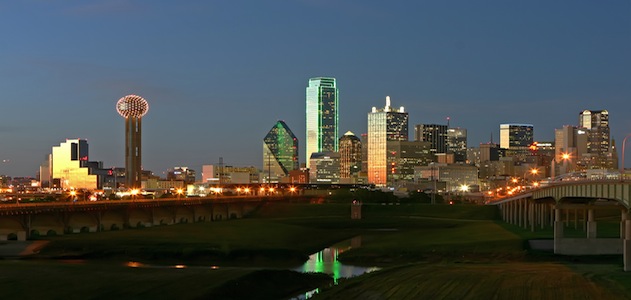Out of 50 states, Texas is one of a few that escaped the financial crisis unscathed.
It has only a few bruises, and no major battle wounds to speak of after the housing bust.
Saying the state is proud of its economic survival is an understatement.
Richard Fisher, president of the Federal Reserve Bank of Dallas, has another take on it. In his opinion, the state is thriving.
"Texas largely avoided the housing boom and bust that affected the rest of the nation," Fisher said. "We did not experience the housing bubble, and neither did we suffer a housing bust."
According to Jed Kolko, chief economist for Trulia, "Texas had a much milder housing bust than any other place in the country mostly."
Still, the area felt less pressure during the crisis, a trend that the Fed Bank sees continuing today.
Fisher referenced a recent Federal Reserve Bank of Dallas report, which claims the Texas housing market stayed afloat during the recession because of an existing state law that limited home equity borrowing.
"That combined with ample land development helped our housing stock increase over the last decade," Fisher added.
With house prices relatively stable, the state escaped the brunt of the housing crisis, the Fed chief indicated.
We are not anti-government; we just have a smart government, Fisher said of Texas.
To name a few positives, Fisher said the Dallas-Fort Worth metropolitan area has grown 2% year-over-year since January 2012, and the Houston area reports one sale every six minutes.
Additionally, Texas also beat the rest of the nation in middle-income jobs and hosts a very strong energy sector. Plus, energy was not even the states most prominent job sector for growth.
And it ticks everyone off, Fisher jokingly noted.
"Now, home prices are back to normal, and if anything, they are a little bit above long-term normal levels. Even construction is a little bit higher," Kolko said. "Texas has one of the strongest housing markets in the country right now."
And for those fearing a bubble, Kolko explained the state is stilll a long way from a bubble and still looks much more affordable than other markets.
Yet, in November, Kolko released Trulia's latest bubble watch — a report that suggested some Texas markets may be slightly overvalued. The report ranked Austin third on the national overinflated list, saying prices in the city are 10% inflated relative to market fundamentals, while Houston was 6% overvalued and San Antonio prices sat 4% above fundamentals.
But for both Fisher and Kolko, the Lone Star state is still a leader in economic development.
"The underperformance of other large states has nothing to do with Federal Reserve policy we pay similar rates on mortgages," Fisher said. "So what gives?"
"The economic miracle can best be explained by John Steinbeck," he said.
“I have said that Texas is a state of mind, but I think it is more than that. It is a mystique closely approximating a religion. And this is true to the extent that people either passionately love Texas or passionately hate it and, as in other religions, few people dare to inspect it for fear of losing their bearings in mystery or paradox. But I think there will be little quarrel with my feeling that Texas is one thing. For all its enormous range of space, climate, and physical appearance, and for all the internal squabbles, contentions, and strivings, Texas has a tight cohesiveness perhaps stronger than any other section of America. Rich, poor, Panhandle, Gulf, city, country, Texas is the obsession, the proper study, and the passionate possession of all Texans.”
But before we get too full of ourselves, the Dallas Fed president did issue a word of caution, saying the Lone Star state is not immune to economic distress.
Texas lacks in social services, has a problem with teenage pregnancies and could use work on its school system, Fisher said.
And while the state still has its fair share of issues, as a whole, the state was able to maintain its foundation during the economic downturn, paving a smoother path for the future.





